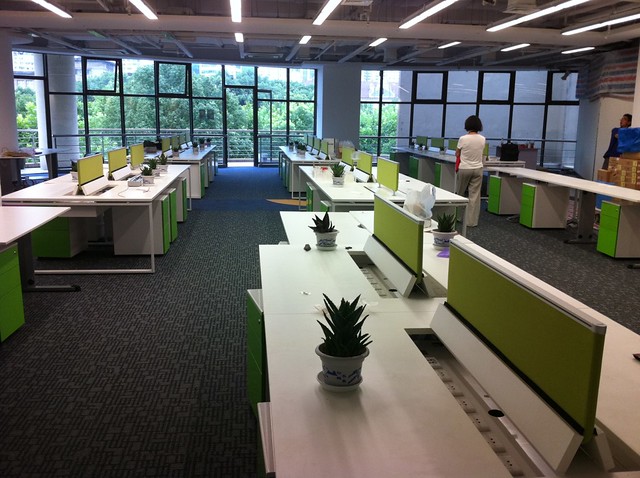I got a list of questions to probe people’s innovation ability. Here is the list, and I think it is well thoughts and written.
- Finds new ideas by relating out-of-industry trends and patterns to the business.
- Creatively solves challenging problems by drawing on diverse ideas or knowledge.
- Often finds solutions to problems by drawing on solutions or ideas developed in other industries, fields, or disciplines.
- Frequently connects ideas from industries or situations unrelated to our business (often through analogy).
- Frequently thinks ‘outside the box’ and others comment on this ability.
- Frequently has ideas or perspectives that diverge radically from others’ perspectives.
- Does careful analysis to make well-thought-out decisions at work.
- Strongly prefers to make data-driven decisions rather than rely on gut instinct or intuition.
- Insists on realism and facts when making decisions.
- Does not jump into new projects and ventures or act quickly without careful thinking and analysis.
- Constantly asks thought-provoking questions to get at the root of the problem.
- Frequently asks questions to understand why products and projects under perform.
- Asks insightful ‘what if’ questions that provoke exploration of new possibilities and frontiers.
- Often asks questions that challenge the status quo.
- Regularly asks questions that challenge others’ fundamental assumptions.
- Excels at breaking down a goal or plan into the micro tasks required to achieve it.
- Consistently creates detailed plans to get work done.
- Regularly makes and follows plans to accomplish work.
- Does work according to an organized plan.
- Is incredibly well-organized in work life.
- Gets innovative ideas by directly observing how people interact with products and services.
- Has a continuous flow of new business ideas that comes through observing the world.
- Regularly observes the activities of customers, suppliers, or other companies to get new business ideas.
- Often pays attention to everyday experiences to get new ideas.
- Is very observant of the world.
- Must have everything finished ‘just right’ when completing a work assignment.
- Pays attention to details at work.
- Is careful to avoid making mistakes.
- Focuses on the details to make sure work is done precisely.
- Consistently follows through on all commitments and finishes what is started.
- Has a history of taking things apart to see how they work.
- Actively searches for new ideas through experimenting.
- Frequently experiments to create new ways of doing things.
- Is adventurous, always looking for new experiences.
- Always follows through to complete a task, no matter what the obstacles are.
- Holds self and others strictly accountable for getting results.
- Doesn’t need a push to get started on new tasks and assignments.
- Doesn’t procrastinate on things that should get done.
- Regularly meets with people outside of the immediate industry to find best practices and spark new ideas.
- Regularly talks with a diverse set of people (e.g., from different business functions, companies, industries, geographies, etc.) to find and refine new business ideas.
- Actively seeks out individuals from very different backgrounds who can help find and evaluate new ideas.
- Frequently interacts with a large network of contacts to get ideas for new products, services, and customers.
- Attends many diverse professional and/or academic conferences outside of the immediate industry/profession.
- Is not afraid of making big mistakes.
- Frequently takes risks.
- Has a strong desire to change the world.
- Thrives on changing the status quo.
- Creates an environment where others share diverse types of knowledge to discover unexpected connections among ideas.
- Encourages others to draw on diverse ideas or knowledge to creatively solve challenging problems.
- Engages others often in brainstorming to generate wild or very different ideas.
- Cultivates an environment that supports the open sharing of different, innovative ideas.
- Promotes asking “why” questions to get at the root of a problem.
- Encourages others to ask questions that challenge the status quo or conventional ways of doing things.
- Encourages others to ask “what if” questions to explore new frontiers and possibilities.
- Cultivates new ideas by giving people frequent opportunities to observe the activities of customers, competitors, or suppliers.
- Provides adequate time for others to directly observe how people interact with our products and/or services.
- Encourages others to pay careful attention to everyday experiences in search of surprising, new ways of doing things.
- Encourages others to be adventurous and seek out new experiences.
- Praises others for experimenting with new ways of doing things.
- Actively supports experimenting by others to discover and develop new ideas.
- Provides opportunities for others to network with individuals from very different backgrounds or perspectives.
- Encourages others to engage in frequent conversations with a diverse set of people (e.g., from different professions, business functions, companies, industries, geographies, etc.) to find and refine new ideas.
- Supports others’ attendance at professional or academic conferences or events to meet people outside of their profession, function, industry, or geography.
- Encourages others to challenge the status quo.
- Supports others’ efforts to initiate significant changes in how we do things.
- Encourages people to take risks.
- Advocates taking risks to pursue interesting new ideas or paths of action. 68.
- Stays more informed about industry and technology trends than colleagues.
- Does not make rash decisions.



